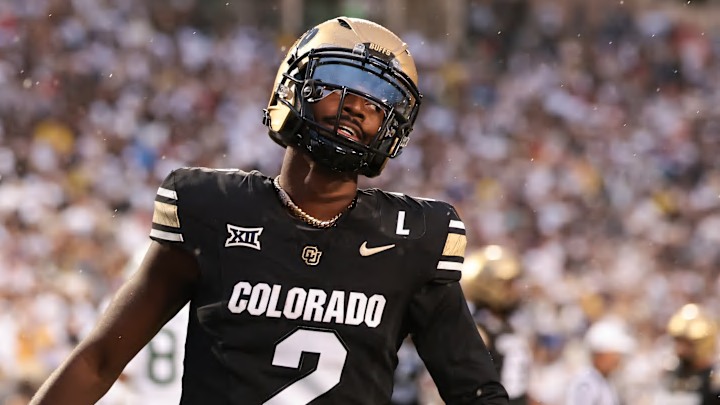Early projections indicated that Colorado quarterback Shedeur Sanders may be the first overall pick in the 2025 NFL Draft. Shortly after, he was projected to be taken within the top five. Then, he was supposed to be a first-round pick.
In reality, Sanders found himself ensnared in a three-day maelstrom created by expectations, mock drafts and projections. He was not the first overall pick or a top-five selection. He was not selected in the first round, the second round, or the third round.
The Cleveland Browns put an end to the suspense on Day 3, trading up to select the Colorado quarterback with the No. 144 overall pick in the fifth round. Sanders was the second quarterback selected by Cleveland and the sixth quarterback prospect selected in a relatively weak draft class.
Shedeur Sanders is among early favorites to win Offensive Rookie of the Year
Despite being the sixth quarterback drafted, Sanders is tied for the sixth-highest odds to win the 2025 NFL Offensive Rookie of the Year award at +1900, per FanDuel Sportsbook. Of the quarterbacks selected in this year’s draft, only Tennessee Titans quarterback Cam Ward, the No. 1 overall pick, has better odds than Sanders at +330.
New York Giants quarterback Jaxson Dart is also tied with Sanders at +1900. The other four players with higher odds than Sanders are Las Vegas Raiders running back Ashton Jeanty (+340), Jacksonville Jaguars two-way star Travis Hunter (+600), Carolina Panthers wide receiver Tetairoa McMillan (+650), and Los Angeles Chargers running back Omarion Hampton (+1400).
The only quarterback projected to go ahead of Sanders was Miami’s Cam Ward. Instead, five quarterbacks heard their names called before Sanders. After Ward and Dart were selected in the first pick, the New Orleans Saints selected Louisville’s Tyler Shough with the No. 40 overall pick, and the Seahawks selected Alabama’s Jalen Milroe with the No. 92 overall pick. The Browns selected Gabriel with the No. 94 overall pick. Shough (+2000), Milroe (+6000) and Gabriel (+10000) all have lower odds of winning OROY than Sanders.
So why did Sanders slide so far down the board? Plenty of opinions will be expressed in the coming days. Digital ink will be spilled in think pieces and sports talk show hosts will take hours of airtime to share their opinions over sports programming. The truth will lie somewhere in the middle, and there is plenty of blame to go around.
The NFL Draft has become a revenue-driven production, and the stories of young football players are leveraged and juggled for profit. In reality, the rising and falling of a prospect’s “draft stock” is a myth: Teams do not believe a prospect is a first-round pick in March and end up grading him as a fifth-round pick in April. The rise or fall of a prospect’s draft stock is only a representation of information collected by media analysts, who are swayed by public perception and anonymous sources.
NFL scouts, evaluators and executives have a much more informed perspective of each prospect. A player’s profile is created by various professionals who paint a full picture of each prospect after years of in-person evaluation by regional scouts, face-to-face interviews, schematic projections, comprehensive physical examinations, psychological examinations and background checks. The exhaustive and multifaceted process isn’t shared with the media, which relies on untrained eyes and anonymous sources to form sensationalized guesses on each prospect’s value.
The difference between a team’s research and the media’s research lies within the money: While teams are making a significant investment with each selection, the media is attempting to make a profit from discussing each prospect.
Sanders, the son of Hall of Fame cornerback Deion Sanders, was built up by the media to be something he was never viewed as by NFL teams. Now, he’ll have to compete alongside fellow rookie Gabriel in a crowded quarterback room that already includes veterans Joe Flacco, Kenny Pickett and Deshaun Watson.
